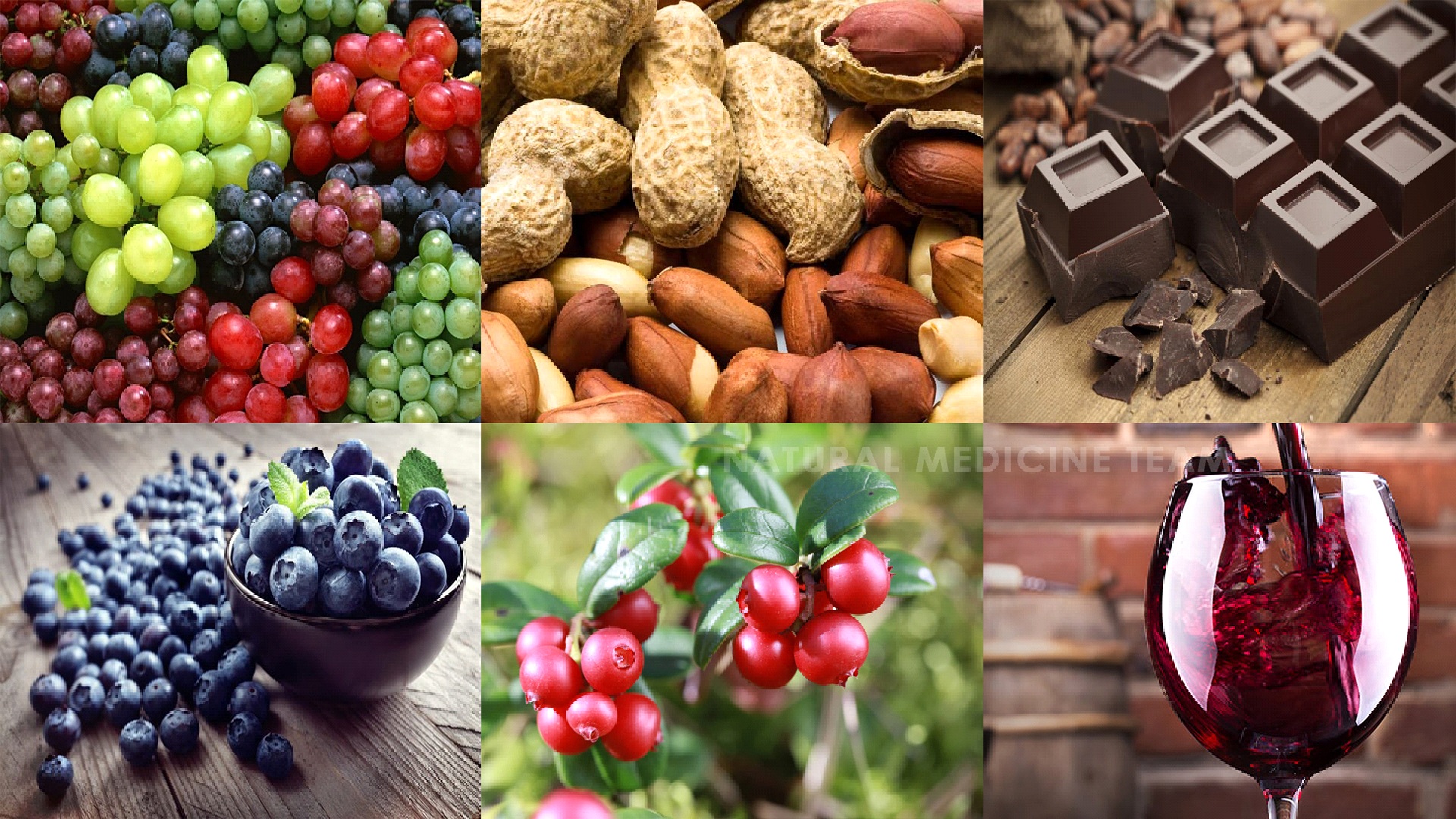Resveratrol is associated with red wine and that’s why most of the people have heard about this powerful antioxidant. This plant compound can help lower cholesterol and improve heart health and also can be found in other fruits, vegetables, and cocoa.
It can cross the blood-brain barrier to help protect your brain and nervous system…these are some of the benefits of resveratrol.

BENEFITS OF RESVERATROL
It is anti-aging
Many researchers have focused on resveratrol’s ability to extend lifespan. According to their results, resveratrol helps to neutralize free radicals that are produced during day-to-day body processes. When one has poor lifestyle habits, free radical damage increases and if left unchecked can damage cells and result in serious diseases and a shorter lifespan.
Numerous studies have revealed that consuming foods with resveratrol can provide anti-tumor, anticarcinogenic, and antioxidative protection from many diseases typically related to aging.
It helps protect against certain cancers
Resveratrol can protect against liver cancer, according to a study. During the late years, scientists have investigated resveratrol’s cancer chemopreventive potential. That’s one of the most striking biological activities of resveratrol.
Few studies have revealed that resveratrol can protect against liver cancer and ongoing research is investigating how it might prevent liver metastasis as well. In animal studies, it’s shown promise in treating skin cancer as well as battling esophageal cancer.
Delays or prevents age-related cognitive decline
Drinking red wine may slow cognitive decline, partially thanks to resveratrol’s anti-inflammatory and antioxidant properties. This compound can noticeably improve blood flow to the brain. That is a significant benefit for healthy brain functioning as well as neuroprotective effects.
This means lowering one’s Alzheimer’s risk and offering protection against dementia and other cognitive problems.
Relieving joint pain
Resveratrol has shown promise for arthritis sufferers as it may help protect cartilage from deteriorating which can cause joint pain when taken as a supplement. Also, it may lower inflammation which has been associated with many chronic diseases.
Supporting heart health
When taken in high doses, resveratrol can help decrease pressure on the artery walls. Moreover, it can lower high blood pressure and thanks to the anti-inflammatory properties it can help to protect one against atherosclerosis. Plus, it can improve “bad” cholesterol, blood clot formation, and myocardial infarction.
Other Benefits:
- Preventing obesity
- Clearing up acne
- Controlling diabetes and prediabetes
- Fighting flu and herpes virus infections
The Best Sources of Resveratrol
- Grapes and red wine. Muscadine grapes have the highest concentration of resveratrol in nature. The truth is that the body absorbs more resveratrol from wine than any other source because this antioxidant is highly soluble in alcohol.
- Blueberries. This fruit is one of the highest antioxidant foods on the planet.
- Lingonberries. It has been said that lingonberries contain a similar amount of resveratrol as grapes.
- Peanuts. One cup of peanut butter offers as much resveratrol as a 5-ounce glass of some red wines.
- Dark chocolate. Foods containing cocoa have a significant amount of resveratrol.
